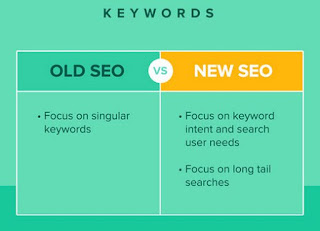How SEO affects your business?
If you're a business, there are some very real and specific benefits to having a consistent, ongoing search engine optimization strategy.
Users leading SEO:
For the first time in the history of marketing, users are offering up their actual intent through the words that they type and speak into search engines.
And more than ever before, you can measure the results of your SEO efforts as a marketing channel.
SEO Free or Paid?
While search engines don't charge you for listing your web pages, planning and implementing SEO in your organization is certainly not free.
You'll need to spend the time, the money, and the resources to do this the right way.
The good news is that this can help you reach a tremendously large audience, attract more targeted visitors, and measure the impact of your efforts in terms of a return on your investment.
More and more content appears on the web every second of every day. And your customers need search engines to help make sense of it all.
Why SEO good for people?
People search to find answers to their questions, to buy products, to find a place to eat, to book travel, to get news. Just about everything we do online starts with a search. We call the motivation behind a given search intent. And it's not just done around the family PC anymore. The explosion of connected mobile devices and voice assistants means that we have access to search just about anywhere in the world with just a few keystrokes or voice commands. What people search for and the words they choose when making their query says a lot about their intent, or what actions they want to take at a specific moment in time. And this has traditionally been the Holy Grail of marketing research.
If somebody searches for Diving in Dahab or where to buy a digital camera, it's very easy, as a marketer, to understand what they're looking for. The role of search engines is to match those user search queries to pages that match that topic. And if you sell cameras, well, what that means to you is that you can create relevant content that meets the needs of the searcher at exactly the right moment.
Good SEO can essentially provide you a stream of some of the most targeted, intent-driven traffic that you could possibly ask for. But more than that, one of the biggest benefits of search engine optimization is the ability to actually measure your results. You can use your website analytics data to find out exactly how successful you are in acquiring search engine users. And you can see if those users' actions are in line with your business goals.
Evaluate your business:
You can evaluate the effectiveness of your content in attracting and advancing the user through your sales file. And you can measure what they do and what they don't do on your website and beyond. By attaching real dollars and cents to those actions that began with a simple search, you'll be able to truly measure return on investment from your SEO channel.
Visit Our Website: Hospitality Career Academy
Full course available at Linkedin SEO
Follow the writer Yasser Afify
























